MARC Edgewood Station. Edgewood, Maryland.
The MARC Edgewood Station is located in Edgewood, Maryland and is sited on Amtrak’s Northeast Corridor between the Martin State Airport Station and the Aberdeen Station serving the Penn Line.
The Penn Line accommodates approximately 25,000 commuters daily from Perryville, Maryland to Union Station in Washington D.C. Prior to this project, a temporary trailer operated as the ticket office; plastic bus shelters were located on the platforms; and access between platforms was provided via steps. The project included constructing an enclosed station building, providing improvements to vehicular and pedestrian access, and an ADA accessible route between platforms via the MD 755 underpass. Coordination was required with key stakeholders including: MTA, Amtrak, Aberdeen Proving Ground, Maryland State Highway Administration, and Harford County. Staged construction was required to maintain commuter service and access to the Amtrak yard during construction.
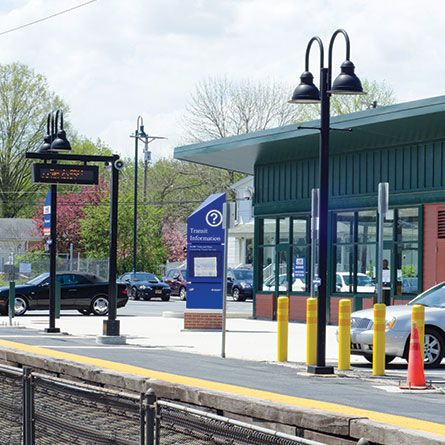
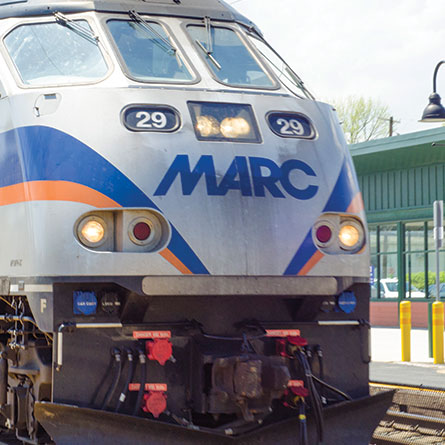
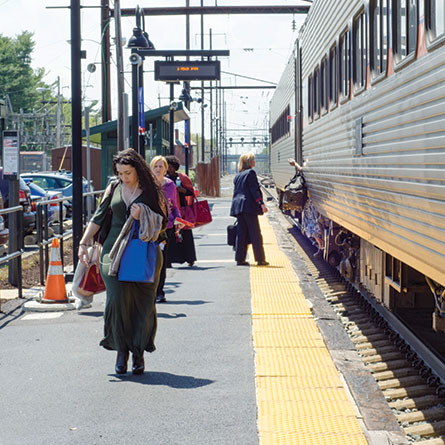
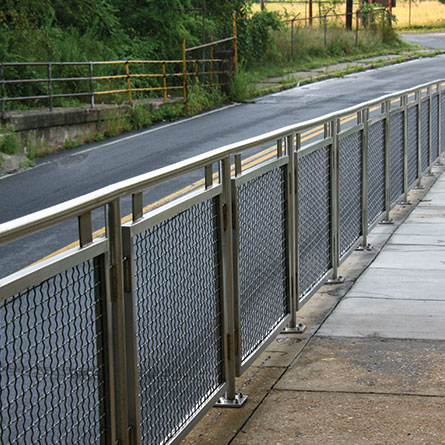
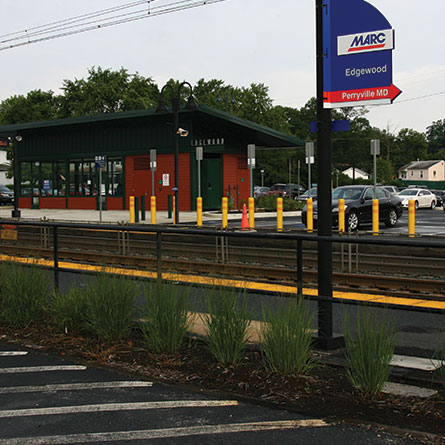
Services Performed
Project Highlights
Civil/Land Development
The parking lots were reconfigured to accommodate vehicular and pedestrian traffic and to provide space for a bus route. ADA access throughout the site was improved by constructing ADA access ramps on both sides of the track that connect the platforms.
Bridges
Due to the existing steep topography, five segmental block retaining walls were required to be constructed along both the northbound and southbound ADA access ramps. The concrete stairs connecting the northbound and southbound sides of the platform were replaced in-kind.
Architectural
Accommodating Amtrak’s planned future widening was essential in locating the enclosed umanned station building. The exterior of the building reflects the aesthetic of a building that existed on the site in the 1900s and the interior offers modern conveniences for commuters.
Water Resources
The site upgrades triggered stormwater management requirements and, with limited space available, the project met the requirements by utilizing an underground sand filter and rain chains that feed into gardens to collect drainage from the roof of the station building.
Electrical
The lighting throughout the site was upgraded to provide appropriate lighting levels to enhance nighttime usage while implementing an aesthetic in concert with the site’s other architectural features. Electrical design included public address, closed circuit TV and LED lighting systems
